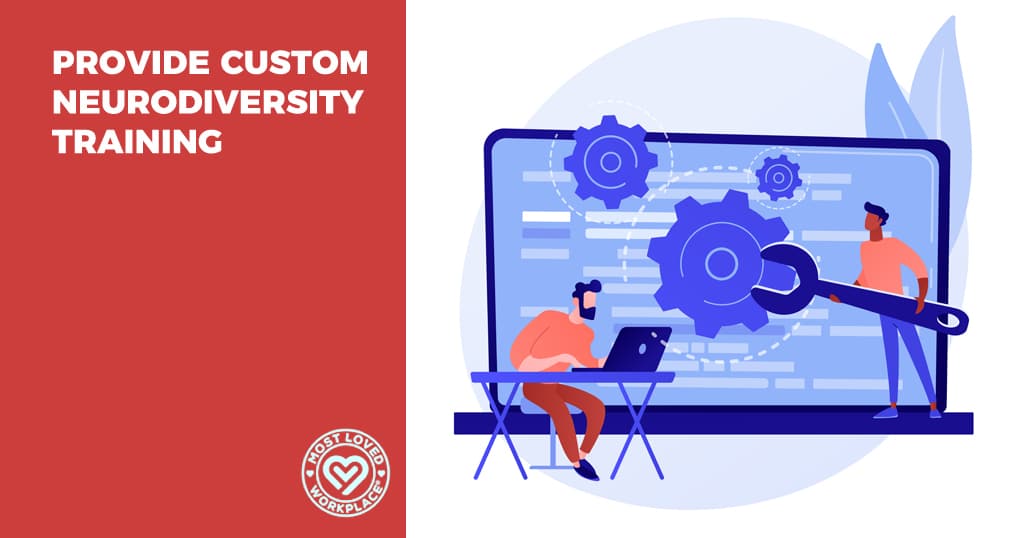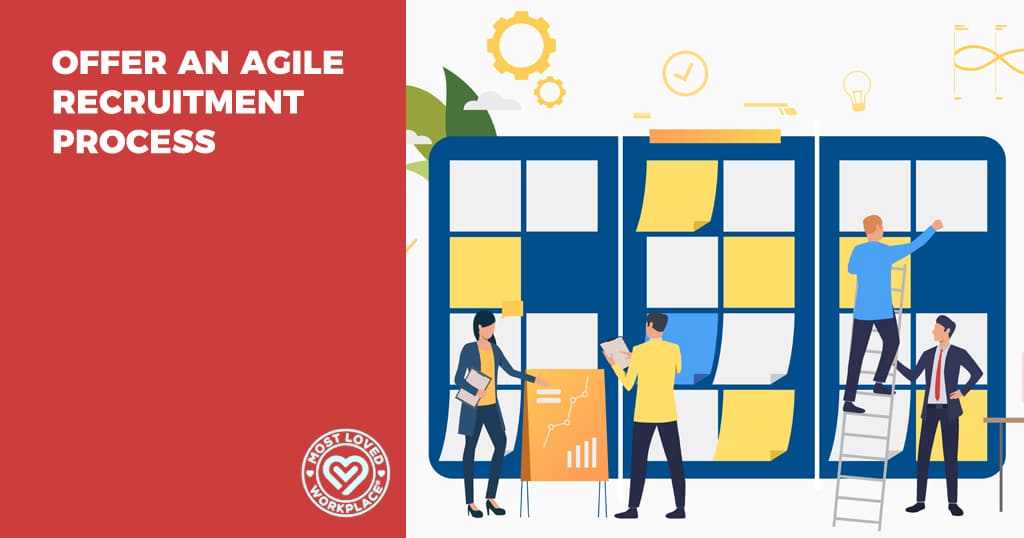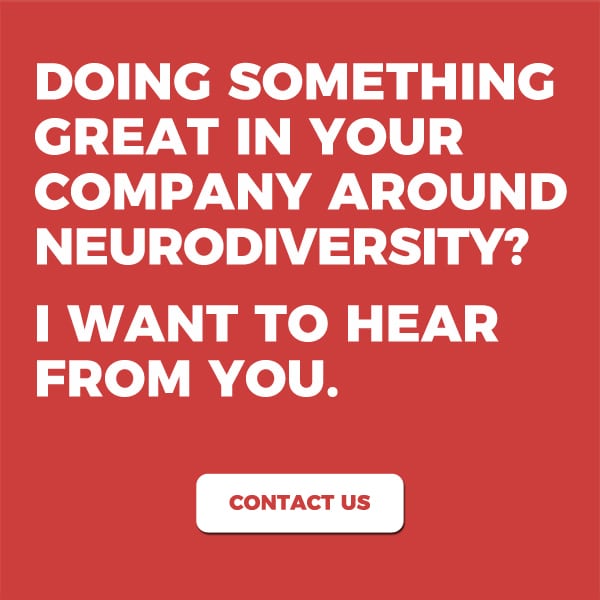4 Neurodiverse Friendly Companies Loved By Their Employees: SAP, HP, Dell, and HomeDepot
Identification as a neurodiverse individual has increased as much as 600% in two decades, pushing neurodiversity ever higher up the organizational agenda. Neurodiversity is one element of a diverse and inclusive workforce, which is a powerful force for candidate attraction and customer loyalty.
Studies demonstrate how neurodiverse employees can enrich workplaces through their specialized skills and the clear benefits to engagement and retention of existing employees. They bring a stronger sense of psychological safety, awareness, and empathy to the entire organization while positively impacting productivity. Here are four Most Loved Workplaces making strides in offering neurodiverse-friendly interventions.
SAP America – Give Opportunities for Neurodiverse Employees to Show Off Skills

“Designed by Freepik” from www.freepik.com
SAP America embraces neurodiversity through its Autism at Work program. Established in 2013, Autism at Work touches on many stages of the employee lifecycle. The employee lifecycle at SAP begins with recruitment interventions like training leaders on the ways neurodiverse individuals might struggle with traditional interviewing processes. The company has teamed up with competitors and suppliers to create practical ways to recruit, enabling autistic candidates to show what they can do through hackathons.
Employee resource groups set up through Autism at Work provide mentoring programs for neurodiverse employees and support activities such as team builds. Because they have embedded these programs into their business, SAP America has become one of the leading companies for neurodiverse employees, with a retention rate of 90% for autistic workers.
HP – Provide Custom Neurodiversity Training

“Designed by Freepik” from www.freepik.com
HP is another company that understands the value and advantage of nurturing a neurodiverse workforce. By tailoring its recruitment programs and aligning them to role-specific competencies, HP has placed neurodiverse candidates in positions allowing them to thrive (software testing is one example).
HP starts onboarding cohorts with recruits in groups of one neurodiverse inductee to four neurotypical individuals. Consultants are on hand to coach managers through challenges associated with managing neurodiverse employees. A buddy system – led by employees who have had full autism awareness training – adds an extra level of support.
Dell Technologies – Offer an Agile Recruitment Process

“Designed by Freepik” from www.freepik.com
Dell Technologies makes no secret of the fact that employing neurodiverse people is a win-win, combining a need to offer opportunities in tight labor markets and the unique set of skills such employees might bring. The Dell Autism Hiring Program aims to empower neurodiverse people and allow them to reach their full potential.
Dell Technologies also offers a more practical and agile recruitment process. Neurodiverse applicants are guided through a series of projects and interactions with leaders, drawing upon a wide array of skills. There are multiple career avenues offered to neurodiverse people, ranging from direct hire to paid internships. A structured onboarding process ensures successful candidates are welcomed and supported throughout their first few months.
The Home Depot – Connect to Consumer Spending Habits

“Designed by Freepik” from www.freepik.com
Home Depot has a long-standing partnership with Ken’s Krew, founded in part by Home Depot angel investor Ken Langone. Ken’s Krew works with young adults with developmental disabilities. The organization trains them and collaborates with companies to find work placements.
Out of all companies working with Ken’s Krew, Home Depot employs around two-thirds of all program graduates. The company has retained a substantial proportion of these employees, some for longer than fifteen years. The company has also discovered that this loyalty translates to consumer spending habits, with Ken’s Krew positively impacting the public’s likelihood to visit and spend money in their stores.
How Workplaces Can Drive Neurodiversity
With the unemployment rate of neurodiverse adults rising as high as 80%, there has never been a better time to begin focusing on neurodiversity in the workplace. The work ensures that neurodiverse-friendly processes connect to DEI strategies that senior leadership strongly believes in and supports.
Recruitment initiatives must lead the way, with atypical and creative hiring processes which will allow neurodiverse candidates to show what they can do. Solid onboarding must complement training and development for neurodiverse employees and the wider workforce. Training and development will drive awareness and appreciation of what this rapidly growing demographic offers to organizations.
If you would like to become certified as a Most Loved Workplace®, click here

Louis Carter is the founder and CEO of Best Practice Institute, Most Loved Workplace, and Results-Based Culture. Author of In Great Company, Change Champions Field Guide, and Best Practices in Talent Management, as well as a series of Leadership Development books. He is a trusted strategic advisor and coach to CEOs, CHROs, and leaders of mid-sized to F500 companies – enabling change and steering employer brand development together with highly effective teams, leaders, and organizations as a whole.


0 Comments